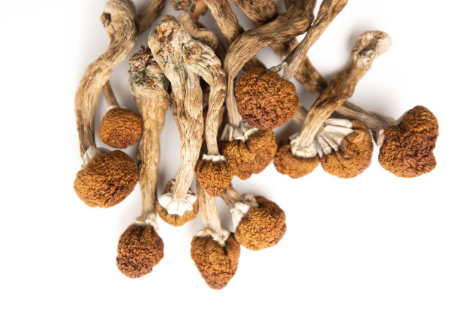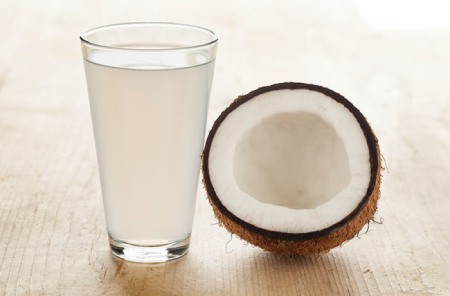Effective teas to reduce cold symptoms
Adults have an average of two to three colds a year. For children, the number is even higher. Typically, a cold causes symptoms such as sneezing, runny and stuffy nose, sore throat, cough, watery eyes, and postnasal drip.
Drinking tea or other warm liquids often helps relieve cold symptoms. It can help keep you hydrated, relieve congestion, and soothe your throat. Here are 10 of the best teas for colds and why they’re good for you.
Mint tea
If you have nausea, peppermint tea is an effective natural remedy. Studies have shown that peppermint is effective in reducing nausea and vomiting caused by chemotherapy. Peppermint contains compounds called menthol and menthol, which help reduce stomach muscle contractions. This can help reduce nausea and vomiting.
It may also act as an expectorant and clear mucus from your airways. The oils in peppermint tea can not only help relieve congestion, but also relieve a sore throat. Preliminary research suggests that it may also have antiviral and antioxidant activity.

Lemon tea
Lemon tea is a healthy and delicious drink that can be consumed during cold and flu season. Lemon tea contains vitamin C, which is an essential nutrient for the immune system. Vitamin C does not prevent colds, but it may reduce the duration and severity of colds. Studies have shown that people who take vitamin C regularly are less likely to catch a cold and experience fewer symptoms if they do.
To reap these potential benefits, be sure to get enough vitamin C on a regular basis. It is recommended to consume 90 mg of vitamin C daily for adults and 65 mg for children aged 4 to 8 years. Taking vitamin C after a cold does not improve symptoms. However, it can help your body heal faster. To get vitamin C from lemon, you can drink lemon tea or you can add lemon to your favorite tea. It is especially great with ginger tea or green tea.

Chamomile tea
Chamomile has been used in medicine for thousands of years. Still today, many people rely on chamomile tea for relaxation. Unfortunately, research on the benefits of chamomile is minimal. However, some studies suggest that it may help reduce anxiety and relieve stomach upset. Additionally, one study found that chamomile may improve sleep quality in people without insomnia. An older study found that inhaling steam with chamomile extract helped reduce cold symptoms.
So, the components in chamomile tea may not reduce specific cold symptoms, but it is likely to help you sleep better so you can recover faster. Plus, side effects are uncommon, so it can be a soothing warm liquid to soothe a sore throat.

Echinacea tea
Echinacea is a medicinal plant native to North America that has been used for centuries to strengthen the immune system. This herb contains compounds that may help stimulate the production of white blood cells and other immune cells.
Echinacea can be taken in various forms, including tea, capsules, and extracts. Research on the benefits of echinacea is mixed, but some studies have shown that it may be effective in reducing the risk of colds and flu.
In one study, 100 people with the common cold took echinacea or a placebo. People who took echinacea had shorter recovery times and less severe symptoms.
In another study, 240 people were exposed to the flu virus. People who took echinacea were less likely to get the flu.
Of course, more research is needed to confirm these benefits. It is also important to note that Echinacea is not safe for everyone. People with weakened immune systems or taking certain medications should consult their doctor before taking echinacea.
Echinacea is an herb that may help boost the immune system. Some research has shown that taking echinacea may reduce the chance of catching a cold. One study found that echinacea tea was effective in reducing the risk of side effects from the flu virus.
We still have a lot to learn, but taking echinacea may help prevent colds or reduce symptoms. Plus, it’s usually safe for most adults. The most common symptoms are gastrointestinal symptoms such as nausea or stomach pain.

Ginger tea
Ginger is a popular medicinal plant that has been used for centuries to treat a wide range of ailments. One of the known benefits of ginger is the reduction of uncomfortable digestive symptoms. Ginger is rich in beneficial phytochemicals, including gingerol, quercetin, and zingerone. These compounds may help reduce inflammation and stomach muscle spasms.
Ginger is a popular medicinal herb that has been used for centuries in China and Africa to relieve the symptoms of colds and bronchitis. In traditional Chinese medicine, ginger is known as an expectorant. Expectorants are substances that help loosen mucus and facilitate its evacuation from the respiratory tract. This can help reduce congestion, cough and sore throat.
While there isn’t much research on the effectiveness of ginger in reducing cold symptoms, one study found ginger to be as effective as the drug loratadine for treating allergic rhinitis. In particular, it improved nasal symptoms. So, if you have nausea or a runny nose, ginger may help.

Green tea
Green tea is a popular drink made from the leaves of the tea plant. This tea has a rich, earthy flavor and has many potential health benefits. One of the potential benefits of green tea is reducing the risk of colds and flu. A recent systematic review and meta-analysis showed that green tea catechins, antioxidant and anti-inflammatory compounds, effectively prevent influenza infection. Each cup of green tea contains about 150 mg of catechins. Drinking 1 to 5 cups of green tea a day seems to be the ideal amount to prevent the flu.









